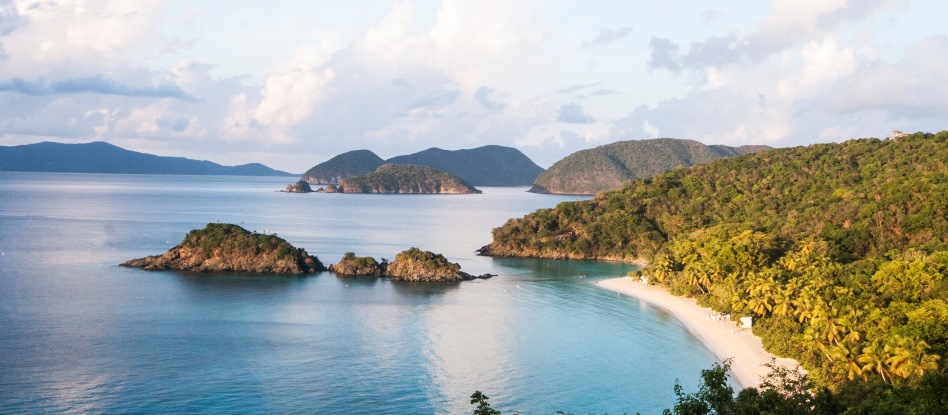News Release

NPS photo
News Release Date: November 20, 2017
Contact: NPS Office of Communications
USVI National Parks are top tourist destinations, Visitors spent in $70M for USVI in 2016
WASHINGTON – Today, U.S. Secretary of the Interior Ryan Zinke and U.S. Virgin Islands Governor Kenneth Mapp announced the reopening of Christiansted National Historic Site and Buck Island Reef National Monument on the island of St. Croix and Trunk Bay Beach at Virgin Islands National Park on the island of St. John. The National Park Service is an important economic engine in the USVI, attracting more than a half a million visitors in 2016 and supporting 900 jobs in the community. Visitors spent $70 million and helped support $34 million in labor and more than $90 million in economic output.
“I couldn’t be more proud of the hard work of National Park Service staff, volunteers, and their partners in the Virgin Islands. Their commitment to the park and to the community is inspiring. I’ve heard many stories of staff tending to the needs of the park and their neighbors before even taking care of themselves,” said Secretary Zinke. “We have a long way to go, but every day we make progress toward getting these parks fully functional to visitors and back to providing important economic support to these communities as they return to normal.”
"The reopening of Buck Island Reef National Monument, Trunk Bay Beach, and Christiansted National Historic Site represents another significant milestone in the recovery of the U.S. Virgin Islands," Governor Kenneth E. Mapp said. "These are, of course, premiere destinations for visitors, but are also significant recreation areas for Virgin Islanders - many of whom traditionally celebrate Thanksgiving at our beaches. Thanks to the Department of Interior, the National Park and all the Virgin Islanders that continue to work on facilitating our efforts to rebuild."
“National parks such as Christiansted National Historic Site, Buck Island Reef National Monument on St. Croix and Trunk Bay Beach at Virgin Islands National Park on St. John protect some of the best of our natural heritage. Together with other protected areas, they attract millions of visitors annually and help to protect the U.S. Virgin Islands' unique wildlife by acting as a refuge for threatened species," said Delegate Stacey Plaskett. "Although their primary purpose is the protection of biodiversity, National Parks also deliver other invaluable economic, social, cultural, and health benefits to our territory's residents. Future generations deserved the right to see these natural values intact and protected as we do today.”
The National Park Service protects and preserves significant historic sites, important ecosystems, and popular beaches that are vital to the tourism economy in the Virgin Islands. For example, visitors to Virgin Islands National Park spent $70 million in 2016.
Christiansted National Historic Site demonstrates the architectural, economic, and political influence of 18th century Europe like no other place in the Caribbean. The 19,015-acre Buck Island Reef National Monument includes the 176-acre island consisting of tropical dry forest and 18,839 acres of submerged lands and coral reefs.
With the opening of Trunk Bay Beach, Virgin Islands National Park now has three popular tourist destinations ready to receive visitors. Honeymoon and Hawksnest beaches reopened on November 13. Water sports equipment rental is currently available at Honeymoon Beach and equipment rental will resume at Trunk Bay Beach today. Taxi service, essential to getting visitors to park beaches, has also resumed.
To reopen Trunk Bay Beach, the National Park Service stabilized numerous structures and removed fallen trees and more than 480 cubic yards of debris. Dive teams removed underwater debris from swimming areas, however visitors are encouraged to use caution when swimming in all areas of Virgin Islands National Park.
While these sites are open to visitors, many services and features at NPS sites across the islands remain closed or inaccessible while cleanup continues.
For continued updates on the status of national park areas in the Caribbean and elsewhere that have been affected by hurricanes and severe weather please visit: http://go.nps.gov/hurricanes.
~NPS~
Last updated: November 20, 2017
